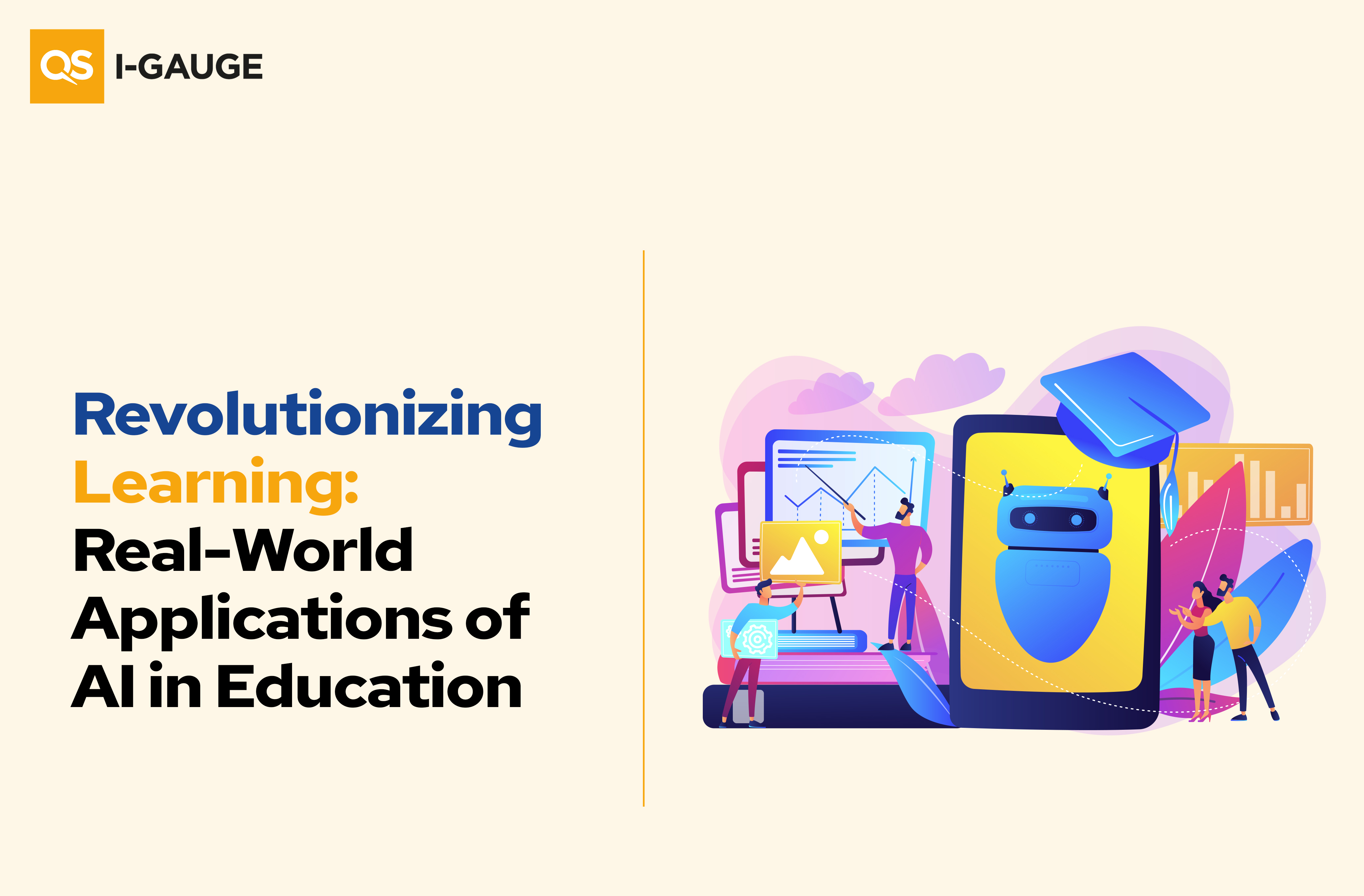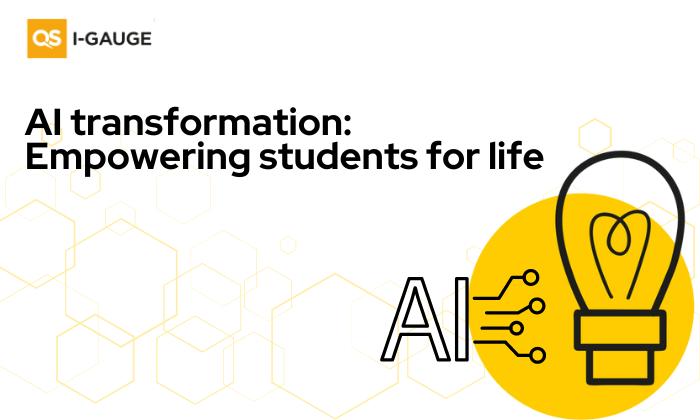
Revolutionising Learning: Real-World Applications of AI in Education
Education is a powerful tool that has the potential to transform lives and break down barriers. However, traditional educational approaches often struggle to meet the diverse needs of learners, leading to gaps in knowledge, accessibility, and engagement. Fortunately, with the inception of Artificial Intelligence, we can overcome these challenges.
By embracing AI in Education, we can create a more inclusive, personalised, and engaging learning environment for students and thereby help them achieve their full potential. In this blog let us delve deeper into the advantages of AI in education and also look at some of the real-world applications that showcase the true potential of AI in education.
Advantages of AI in Education
The implementation of AI in education brings forth a multitude of benefits. AI has the potential to revolutionise learning by personalising education to the unique needs of each student. Through adaptive algorithms, AI can tailor educational content and pace to optimise individual learning outcomes.
AI-powered tools enable real-time assessment and feedback, providing students with immediate insights into their progress and areas for improvement. By automating routine tasks like grading or generating personalised study plans, teachers can allocate more time for individualised instruction and mentoring.
One significant advantage of AI in education is that it can be made available to anyone. AI-driven platforms and online courses make quality education accessible to a broader audience. Students from different parts of the world can access the same high-quality educational resources, ensuring a more equitable distribution of knowledge.
As the job market evolves with technological advancements, AI can help integrate essential skills such as problem-solving, critical thinking, creativity, and collaboration into the curriculum. Intelligent tutoring systems can provide students with hands-on experiences and simulations that prepare them for real-world challenges, fostering a more well-rounded workforce.
Additionally, the continuous evolution of AI ensures that educational content remains current and relevant. AI algorithms can analyse trends, updates, and changes in various fields, ensuring that educational materials are up-to-date. This responsiveness to the dynamic nature of knowledge is essential in preparing students for a rapidly changing world.
Real-World Applications Using AI in Education
1. Personalised Learning
Imagine a classroom where every student is provided with a virtual tutor that understands their learning preferences, pace, and areas of struggle. This innovative approach not only empowers students to take charge of their education but also ensures that they receive targeted support precisely where it is needed most.
AI-powered systems can analyse vast amounts of data generated during the learning process. By examining patterns and trends in student performance data, teachers gain invaluable insights into each student's progress. This allows educators to identify areas for improvement quickly and adapt their teaching strategies accordingly.
2. AI-powered virtual classrooms
AI-powered virtual classrooms are revolutionising the way education is delivered, breaking down geographical barriers and creating endless opportunities for students worldwide. Through advanced algorithms and real-time communication tools, AI enables seamless interaction between students and teachers, fostering an immersive learning environment.
By identifying each student's strengths, weaknesses, and preferred learning styles, AI can recommend tailored content and adapt teaching methods accordingly. This personalised approach not only enhances student engagement but also promotes a deeper understanding of the subject matter.
Moreover, students with different abilities can access specialised resources and receive customised support through assistive technologies integrated into the platform. This empowers students with disabilities to actively participate in class discussions and collaborate with their peers, ultimately fostering a sense of belonging and equal opportunity.
3. AI for early intervention in special education
By leveraging advanced algorithms, AI tools can analyse vast amounts of data to identify weaker students and provide timely interventions. One inspiring case study is the implementation of an AI-driven virtual assistant in special education classrooms. This virtual assistant uses voice recognition technology to interact with students and assess their progress in real time.
Another example is the use of AI-powered predictive analytics systems that analyse student behaviour patterns to detect early signs of potential academic or behavioural issues. By detecting these indicators at an early stage, educators can intervene promptly and tailor interventions to address specific challenges faced by each student.
Conclusion
To sum up, the potential of AI in education is vast and it offers a multitude of benefits to both educators and students. The integration of AI in education not only enhances efficiency but also fosters a dynamic and inclusive learning environment, preparing students for the demands of an increasingly digital and interconnected world.
Disclaimer
The views and opinions expressed in this blog do not necessarily represent those of QS-ERA India Private Limited and/or its employees, partners, shareholders, or other stakeholders.







Leave Your Comments